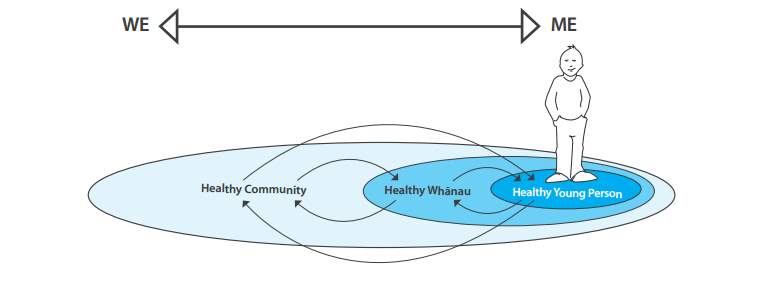Positive Youth Development (PYD) has been described as an “approach that guides communities in the way they organise programmes, people and supports so that young people can develop to their full potential “(Pittman). This Positive Youth Development in Aotearoa (PYDA) framework seeks to explore the confluence between the various approaches to PYD documented in local and international literature, with the grass roots experiences of young people and organisations in Aotearoa / New Zealand. We hope to promote fresh thinking by those working with young people and the funding providers supporting them. This includes both private and public funders of adolescent focused programmes across a range of professions (social work, youth work, education, counselling, social services, corrections, justice etc), as well as managers, programme leaders and programme designers, the adults working with young people as well as parents, communities and young people themselves.
In essence this PYDA framework suggests that both informal and formal initiatives, activities and programmes intentionally weave connections by intergrating two key focuses and adopting three key approaches;
Key Outcomes
- Developing the whole person.
- Developing connected communities.
Key Approaches
- Strength based.
- Respectful relationships.
- Building ownership and empowerment.
In the Positive Youth Development in Aotearoa resource each of these components is explored and linked to the experiences of young people in Canterbury who have come into contact with youth development organisations.
The Positive Youth Development in Aotearoa framework (PYDA) has been developed by the Youth Advisory Group (YAG) for the Wayne Francis Charitable Trust (WFCT) a Christchurchbased private family philanthropic Trust. The Trust’s funding focus is on young people from 0-25 years. As part of its strategic approach WFCT commissioned the YAG to develop criteria against which organisations and projects being considered could be assessed as to whether they supported young people appropriately. This document has grown out of research commissioned by WFCT in 2009 and originally published in the Youth Studies Australia journal, ‘Youth Work that is of value: Towards a model of best practice’.


